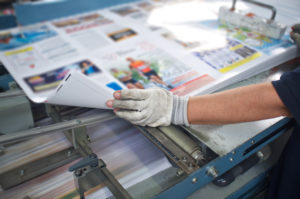7 Misconceptions About Self-Publishing Authors Should be Aware Of

Taking control of the book publishing process doesn’t mean your book will appear any less professional than a traditionally-published book.
Fifteen, even ten, years ago, the only way to have your book taken seriously was to have it published by a mainstream publisher – a name, like John Wiley & Sons, Random House, McGraw-Hill, and others. Sure, self-publishing was available, but authors who went that route were assumed to have a manuscript that was not of publishable quality. So, for the most part, authors continued to pursue traditional contracts.
And then the market fell out of publishing. Mainstream publishers became so risk-averse that the number of contracts offered and the size of associated advances shrunk. First-time authors suddenly had a huge barrier to entry that made it almost impossible to land a contract. And the financial model changed so much that it became less financially viable to publish through a traditional publisher. There was so little money to be made on most mid-list books.
Which is when self-publishing came into prominence. Authors with terrific ideas and well-written books couldn’t land a traditional contract that made sense, so they opted to self-publish.
Today, self-publishing is very popular among first-time and veteran authors for a number of reasons. But some misconceptions still linger, so I wanted to clear them up. Here are seven myths about self-publishing you should be aware of:
1.Your self-published book won’t be taken seriously. Not true. Few readers today care about the name of the publishing house on the spine of your book – they just want the content. Sure, your book needs to look and feel like a traditionally-published book and not like a knock-off, but many self-publishing companies provide finished products that rival those released by the big houses. If your self-published book isn’t taken seriously, it’s for reasons other than the production process, such as lots of typos and grammatical mistakes.
2.The quality of self-published books isn’t as good as traditionally published titles. Not true. Advances in graphic design software and printing technology mean that self-publishing companies and the big guys are likely using the exact same equipment. The books look the same. So to ensure that the quality of the prose is on par with major publishers, you simply need to hire a picky editor who will whip your manuscript into shape.
3.Producing a self-published book is so much more work. Not true. Yes, it is true that there may be more moving parts to manage, but it’s not significantly more work and you reap the rewards of that work in the higher profits you’ll earn. Most self-publishers will offer you services a la carte, meaning you can pick and choose what you need and what you don’t. You can pay to have your book laid out by the publisher, for example, or hire your own graphic designer to do it. You can retain your own editor to go through it or rely on the publisher’s – major publishers hire editors, too. So that’s not an extra step. The plus is that you have control – you choose the cover, the layout, the structure, the title – rather than having to give it up in exchange for a contract.
4.You have to work harder to market it than with a traditional publisher. Not true. What is true is that major publishers today expect their authors to actively participate in marketing their books; they don’t have a team that will do the work for you. Marketing responsibility is on your shoulders no matter which publisher you go with. Opting to go with a major publisher will not absolve you of doing any marketing, just as choosing to self-publish won’t suddenly shift marketing responsibility onto you. It’s there either way.
5.Self-published books are harder to get into distribution. That depends on the publishing company you go with. Many companies do offer book store distribution assistance and setting books up on Amazon is a simple process almost anyone can master. Just because your book is self-published will not prevent it from being sold in book stores.
6.You’ll have to fill your garage with cases of your books. Not true. While the financial realities of printing do provide economies of scale that make each book cheaper the more you print, the rise of print-on-demand (POD) printers have enabled authors to buy as few as a single book at a time. I wouldn’t recommend that, since the cost per book is going to nearly eliminate any profits, but you won’t have to take delivery of 10,000 copies either.
7.Even if you self-publish initially, you can always sell it to a major publisher later. Not likely. Yes, once in a while, self-published titles that become blockbuster bestsellers are bought by publishers and reissued, sometimes under a different title, but those are certainly the exception, not the rule. Publishers want hits, so if your book does well, meaning selling 20,000-25,000 copies, you may make a good bit of money but those numbers are probably not big enough to catch the attention of a mainstream publisher. If you really want a major publisher to produce your book, put your efforts into landing a contract right up front.
Great article, Marcia.
I’ll add to point 3 that if you go the total DIY route, it IS more work — you have to know all kinds of details — but none of it is overly challenging and there are tons of generous self-published folks who will answer your questions in Facebook and LinkedIn groups. And regarding point 5, you can contract with a company like New Shelves Books to do that for you.
Thanks for the myth busting!
Sandra Beckwith
Marcia – there are so many self-publishing companies out there. How about a review of the best?
Thanks
Blythe
Great idea, Blythe!